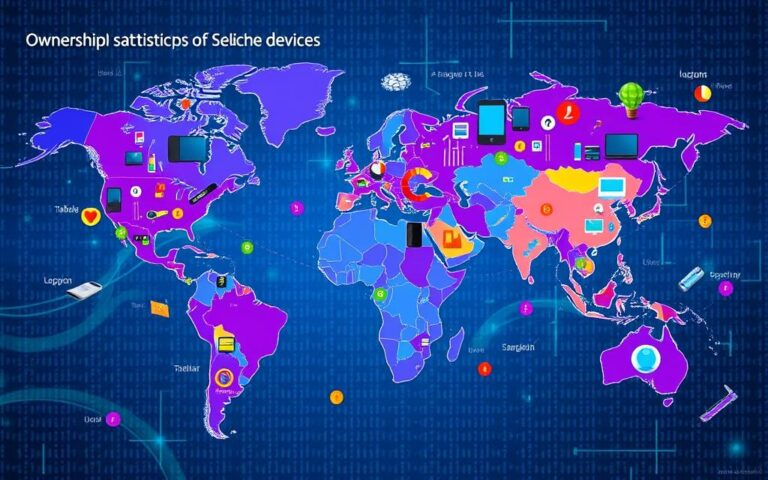Responsibilities of a Director of Information Technology
Introduction
The job of a Director of Information Technology is key in modern organisations. It includes many IT Director responsibilities important for keeping information technology operations running smoothly. This role needs someone who can think ahead. They must plan and carry out a technology strategy that fits the company’s goals. In big companies, there might be more than one IT Director. This is because managing IT can be complex.
People in this role usually have degrees in programming, computer science, or computer engineering. They also have experience leading teams. Industries like healthcare, government, and education hire many IT directors. This is because technology is important in these fields. The job market for IT directors is growing fast. By 2030, it’s expected to increase by about 11%. An IT director earns about $164,070 a year, making it a desirable job.
Introduction
The role of a Director of Information Technology has become really important in today’s business world. This introduction to IT Director shines a light on their crucial role within a company. As firms rely more on tech, having effective technology management is key. An IT director makes sure IT matches the company’s needs and boosts efficiency.
IT directors have many jobs. They manage IT operations, lead teams, and plan tech strategies. They need a lot of experience, usually about eight years in IT, and three years in leading teams. A degree in information technology or a similar field is needed. Higher degrees are often a plus.
In today’s tech world, the need for strong IT leadership is clear. IT directors must talk well with all departments. They need to know what technology each one needs. Good IT leadership is important for making decisions and showing why skilled directors matter in tech roles.
As companies change, IT directors face more challenges. They’re encouraged to keep learning and get certifications to stay up-to-date. IT directors might play bigger roles in the future. They could work more closely with business goals and help spread tech through all parts of a company.
For more info on what an IT director does, you can look at this resource.
What is a Director of Information Technology
A Director of Information Technology plays a key role in a company. They handle many tasks to keep IT systems running well and make sure tech supports the company’s goals. This job is more than just managing; it means leading the tech team wisely and planning how to use tech resources.
Overview of the Role
An IT Director looks after network operations, keeps data centres running, and takes care of security. They also handle the IT budget and staff, making sure everything works well for everyone in a school or company. Key duties they have include:
- Setting IT rules and ways of doing things.
- Advising on how to choose and get technology.
- Working with vendors and team on tech projects.
- Planning training for the IT team.
- Thinking ahead about what tech will be needed.
This role involves managing IT things well to improve how work gets done. At the same time, it’s about creating a responsible and together work culture at top levels of the company.
Differences Between IT Director and CIO
It’s crucial to know the difference between an IT Director and a CIO if you’re in or getting into IT management. These jobs both oversee IT, but they focus on different things:
| Aspect | IT Director | CIO |
|---|---|---|
| Focus | Managing IT day-to-day. | Aligning tech with company goals. |
| Responsibilities | Looking after systems, staff, and security. | Setting long-term tech plans and policies for the company. |
| Role in IT Leadership | Putting IT strategies into action. | Making big decisions that affect the company’s goals. |
In bigger companies, these roles exist together. They ensure the company achieves great operational work and follows a strong tech vision.
Core Responsibilities of an IT Director
An IT Director’s role is vital for an organisation’s tech success and security. They need to blend strategic planning with daily management. This ensures tech resources meet business aims.
Managing IT Strategy and Operations
An IT Director sets and follows tech plans to help business goals. They make smart choices on tech spending and keep the IT strategy up-to-date. For this job, one needs over five years in tech management and strong project management skills.
Overseeing IT Infrastructure
The IT Director also looks after the IT system’s health and safety. They check and manage networks, servers, and programs. Using their analysis skills, they ensure everything runs smoothly and plan for tech needs ahead.
Developing Cybersecurity Measures
Creating a strong cybersecurity plan is key today. The IT Director leads in making and applying IT security rules. This includes risk check-ups and disaster recovery plans. They work with all departments to keep data safe and spread security awareness.
| Responsibility | Description | Key Skills Required |
|---|---|---|
| Managing IT Strategy | Develop and align technology initiatives with business goals. | Strategic planning, project management, analytical skills |
| IT Operations Oversight | Ensure efficient management of IT functions across the organisation. | Leadership, problem-solving, organisational skills |
| IT Infrastructure Management | Supervise IT infrastructure performance, including networks and servers. | Systems administration, technical knowledge, assessment skills |
| Cybersecurity Strategy | Develop measures to protect sensitive information and ensure data security. | Risk management, policy development, collaboration |
Understanding an IT Director’s key roles shows how complex and crucial their work is. This ensures technology stays safe and useful in a company. To learn more about these tasks and what they involve, check this resource.
Essential Skills for an IT Director
An IT Director is key to the tech side of a business. They need both tech savvy and strong leadership skills. Knowing what skills are needed helps manage tech well and boosts business.
Technical Expertise
IT Directors must know a lot about tech. They should be good at managing systems, networks, and recovering from disasters. It’s vital to stay current with new tech and trends, so they can innovate and lead.
Leadership and Management Skills
Great leadership skills are crucial for IT Directors. They should inspire their teams and work well together. They need to explain complex tech in simple terms and keep the whole company on track. When facing tough projects, they must solve problems and make sure goals are met.
| Essential Skills | Secondary Skills |
|---|---|
| Strategic Planning | Vendor Management |
| Budget Management | Team Leadership |
| Project Management | Communication Skills |
| Risk Management | Regulatory Compliance |
| Change Management | Innovation Management |
| Technical Expertise | Customer Service Orientation |
| Data Analysis | Technical Training |
| Cybersecurity Oversight | Disaster Recovery Planning |
| Performance Monitoring |

Tools and Technologies Utilised by IT Directors
IT Directors use many tools and tech to make their work better and more efficient. In the fast digital world, choosing the right application software and IT management tools is key. These tools make processes easier and help manage tech resources well.
Software and Applications for IT Management
Using the right application software is vital for good IT management. There are many platforms that help with assigning tasks, checking progress, and handling projects. Popular options include:
- Office 365 for working together
- Google Workspace for talking and sharing files
- ServiceNow for IT services
- Jira for project tracking in agile teams
IT management tools are essential for keeping data safe and making workflows better. They support teamwork, no matter where everyone is. This makes the workplace more efficient.
Importance of Data Security Tools
Tools to protect data are also very important. IT Directors need strong methods to keep data safe from threats. Good IT security software includes:
- Encryption software for safe data sending
- Malware protection against cyber attacks
- Cloud backup for emergency data recovery
Using these tools strengthens a company’s defence against cyber threats. It also helps follow data privacy laws. IT Directors must always stay updated on security risks to protect data.
Conclusion
The role of a Director of Information Technology is very important. It covers many tasks that are key for any company to succeed. This includes planning, budgeting, and managing IT resources and systems.
These leaders make sure technology helps the company improve and innovate. They guide their teams through complex tech challenges. This helps create an environment that supports new tech developments.
Effective IT leadership is crucial. It makes sure technology works well with company goals. IT Directors lead in embracing new tech, managing risks, and following rules. They keep their teams ready for changes in the industry.
The need for skilled IT leaders is growing. As technology changes, so do the roles of IT Directors. They must keep learning and training. Their advice boosts efficiency. It also helps the company innovate and stay strong in the digital age.
FAQ
What are the primary responsibilities of a Director of Information Technology?
The main tasks of a Director of Information Technology include managing tech resources and the IT team. They align IT plans with the company’s goals. This role is key for developing strategies to support the company’s objectives through technology.
How does the role of an IT Director differ from that of a Chief Information Officer (CIO)?
An IT Director focuses on running the technology side of things day-to-day, looking after systems and their reliability. On the other hand, a CIO looks at how technology can meet broader business goals. The CIO has a wider lens on technology’s role in the company.
What skills are essential for a successful IT Director?
To be a successful IT Director, you need a strong grip on IT, leadership skills, and the ability to communicate well. They should also handle projects effectively. Keeping up with the latest in tech and trends is also crucial.
What type of tools and technologies do IT Directors typically utilise?
IT Directors work with a mix of tools and technologies. They use IT management systems, cloud services, and ERP systems. Tools like Office 365, data security measures, and cloud backup are also key for safeguarding info.
Why is cybersecurity a critical responsibility for an IT Director?
Cybersecurity is key for IT Directors as they need to shield company info. They handle risk checks, disaster plans, and set IT security rules. Ensuring the whole company follows data protection standards is part of their job.
How does an IT Director contribute to an organisation’s digital transformation?
An IT Director helps in digital transformation by matching tech efforts with the company’s aims. They make IT more efficient and bring in new tech to boost productivity. Their role is vital in using IT resources wisely for change.
What is the significance of data privacy regulations for an IT Director?
Data privacy rules are important for an IT Director to keep the company on the right side of the law. They help put in place the right measures to protect data and lower legal risks.









